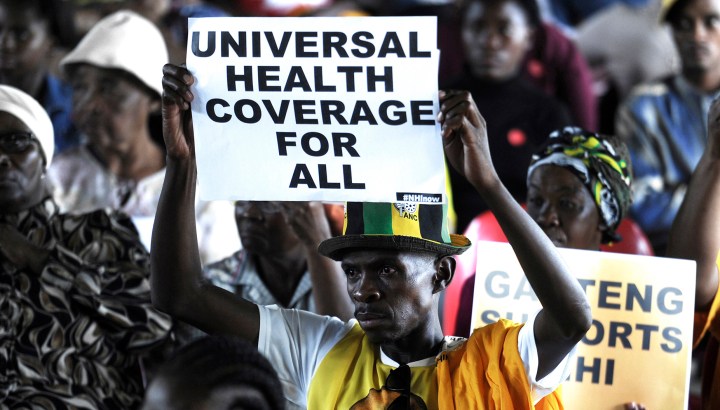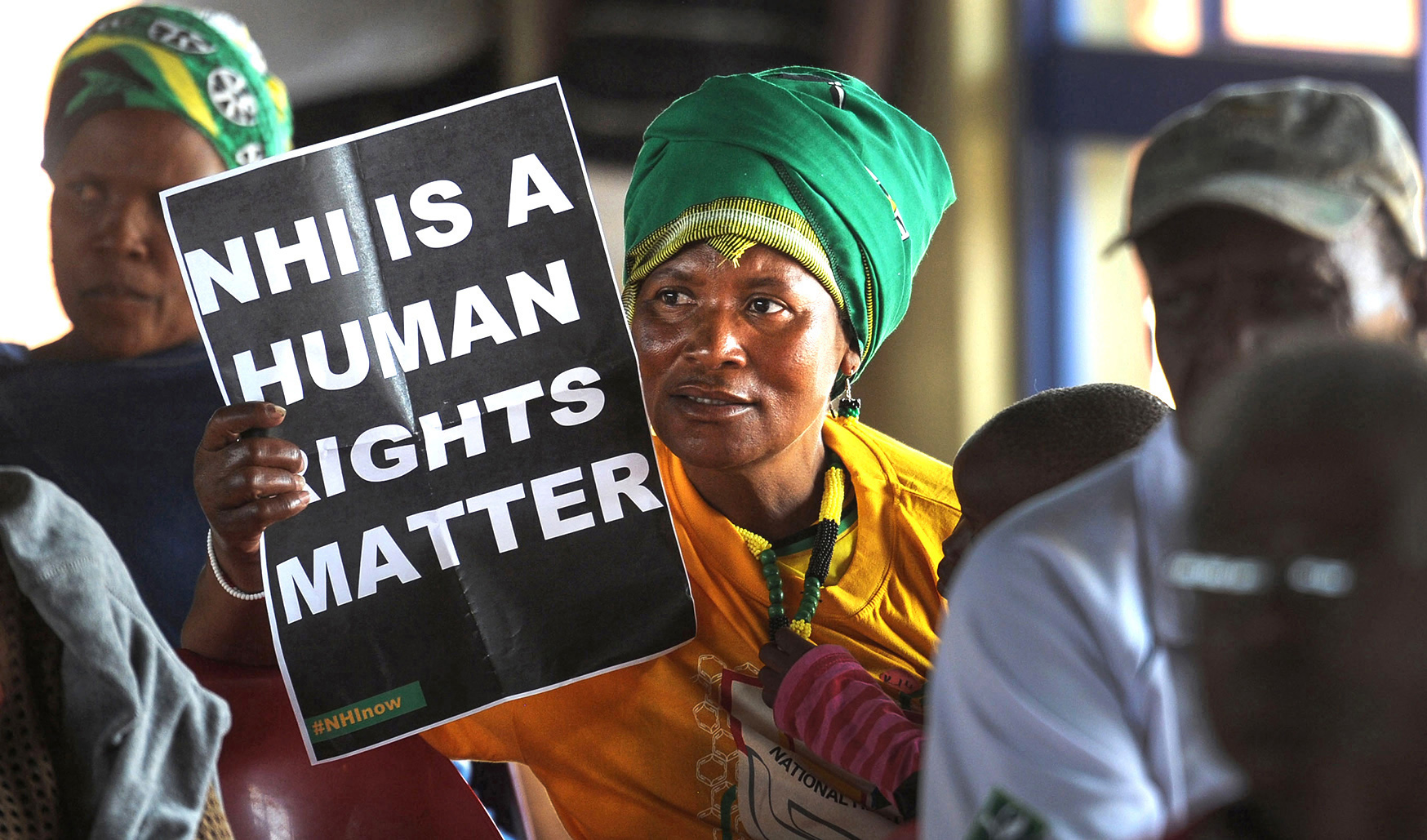HEALTHCARE OP-ED
Patient organisations must speak up on final NHI review — or be left in the cold

The NHI is an excellent and much-needed policy review. But it must not happen without the input of the patients it is intended to help.
The NHI Bill is being scrutinised clause by clause by Parliament’s Portfolio Committee on Health. Thereafter, it will head to the National Council of Provinces where it will be carefully considered, passed, amended or rejected by year-end. This might be the last chance for a patient’s voice to be heard before the NHI becomes law. Government has stated clearly that the process will not be delayed.
The call for policy engagement went out far and wide and was responded to by various groups including big pharma, health professionals, unions, retail giants and even community groups.
However, the least engagement came from patient groups. Patients are meant to be the primary stakeholder group, yet their participation is scant at best and ineffectual at worst.
If an overwhelming bulk of submissions was made by all other non-patient health policy participants, then the NHI is skewed towards their interests as opposed to those of patients.
It wasn’t always like this. In the past, effective patient-led organisations such as the TAC successfully elevated patient submissions for HIV and Aids in the health policy process. We would expect a multi-stakeholder patient group to file submissions on this issue.
Patients’ perspectives
Of the 21 members who were invited as NHI stakeholder representatives to the Presidential Health Summit in 2018, only two contributed patients’ perspectives, interests and needs. Both came from specialised single-issue patient groups predominantly representing HIV and cancer patient constituencies.
Similarly, one of the brief summaries of stakeholders’ submissions on the NHI Bill that was published by Parliament lists organisations and institutions that made submissions, most of which were non-patient stakeholders. According to Parliament’s portfolio committee on health, about 11,564 public members in 33 districts attended the hearings, where an estimated 961 oral submissions were made.
More than 330,000 written public submissions have to be considered.
There are several organisations already doing work on the ground. The Public Health Education, Liaison and Advocacy Foundation is an example of a patient organisation that attempted to influence the City of Johannesburg’s Integrated Development Plan to improve patient access and service quality in primary healthcare clinics. None of its oral and written submissions was reflected in the final plan that was adopted for funding and implementation.
Evidently, advocacy and lobbying for improved health outcomes at local and national health levels prove difficult for patient organisations.

A public hearing on the National Health Insurance (NHI) in Kagiso, Johannesburg. (Photo: Rosetta Msimango / Spotlight)
The NHI White Paper stipulates that the success of this health reform requires a patient-centred responsive healthcare system. For this reason, patient involvement is critically essential in all phases of the process to transform the system.
Patients need to step up to the plate to inculcate participatory governance and accountability in the NHI process. So far, the NHI is contested and dominated by politicians, academics and other policy stakeholders who make the process much more complex.
Health policy advocacy is indeed a highly technical process. But patients should still be at the front and centre of the process. It is unlikely that the government will ensure that patient voices are not only given a platform, but that they are heard.
Why the special focus on patients? Yes, all stakeholders need to give input in this final process. But the voices of patients cannot be muted on this critical issue.
We must coordinate patients’ input on health policy so that their genuine positions, interests and voices are elevated and mainstreamed.
We need a legitimate patient-led national movement that will reshape the NHI in its current stage of the process, and we need it before the bill is passed into law.
Visit Daily Maverick’s home page for more news, analysis and investigations
This is just the start. Patients must be included not only in the policy process, but also in the NHI implementation and review.
We need regulation that compels health policy to intentionally engage patients in a way that can be monitored and measured. If we don’t do this, there is a danger the NHI will be seen by patients and the public as a top-down, imposed policy.
If patients are uninvolved, the current NHI process could result in unintended consequences — such as unfair benefits that mainly accrue to the experts who have shaped it, as opposed to patients.
Right now, the ball is squarely in the court of patient organisations to influence the NHI policy. Patients themselves should be structured and coordinated to effectively influence the current NHI phase for their benefit.
When patients are involved as the major health policy participants, buy-in and ownership are guaranteed and the NHI is more likely to achieve universal reach and equitable health for all South Africans.
The NHI is an excellent and much-needed policy review. But it must not happen without the input of the patients it is intended to help. MC/DM
Lebohang Molete is a senior fellow at the Atlantic Fellowship Programme for Health Equity in South Africa based at Tekano. He is a founder of PHELA Foundation, a patient advocacy organisation.





















 Become an Insider
Become an Insider
“The NHI is an excellent and much-needed policy review.”
No it is absolutely not. It’s a catastrophe waiting, and will end in a corruption fest. It is unsustainable and unaffordable. It is the primary reason medical staff are leaving the country in droves. SA spends roughly the same amount on healthcare that most first world countries do, but it all gets stolen and wasted. Before even contemplating the NHI, the ANC needs to clean up their corruption mess.
So to sum up, the NHI is a catastrophe, that is only being pushed right now so the ANC can get some votes and distract from cadre deployment, tenderpreneurs and theft of public funds, and there is literally nothing that indicates that the NHI would fare any better than ESKOM, and we all know what the ANC did to our power company and every other public enterprise.